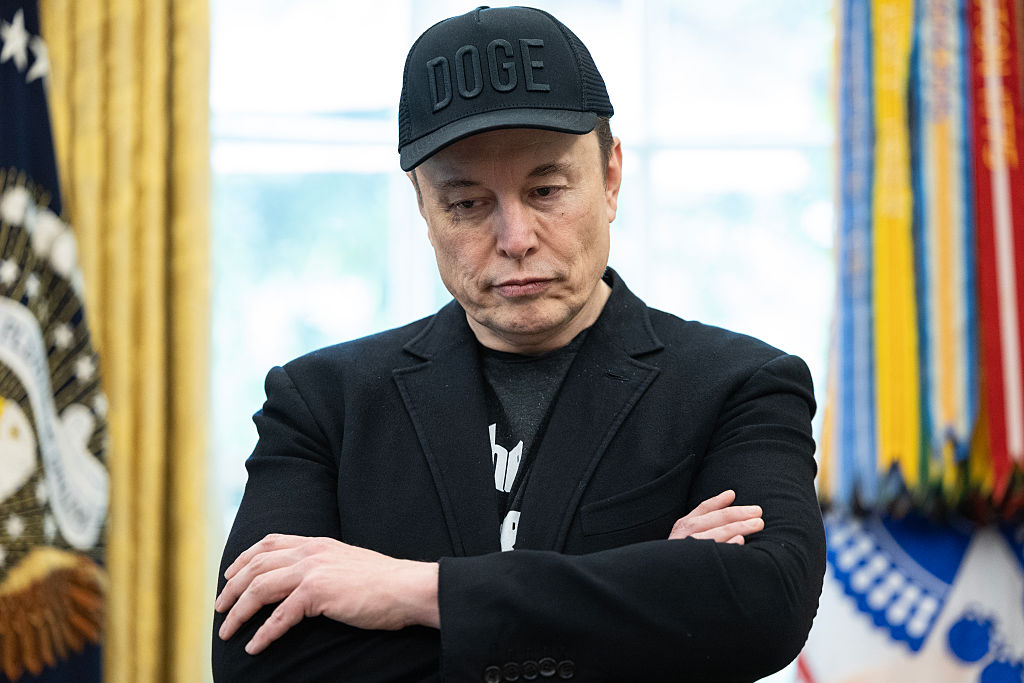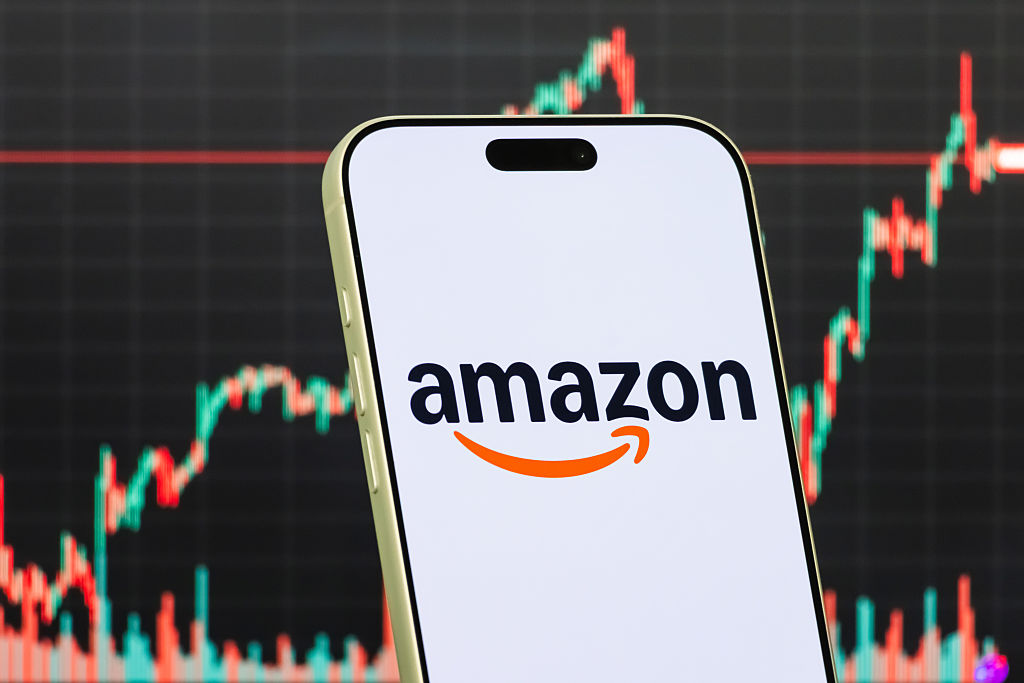Why Big Tech’s move into medicine is a mistake
The big tech companies have long wanted a slice of the medical action, and now they are moving in. They are making a big mistake and will fae a huge backlash, says Matthew Lynn.


Get the latest financial news, insights and expert analysis from our award-winning MoneyWeek team, to help you understand what really matters when it comes to your finances.
You are now subscribed
Your newsletter sign-up was successful
Want to add more newsletters?

Twice daily
MoneyWeek
Get the latest financial news, insights and expert analysis from our award-winning MoneyWeek team, to help you understand what really matters when it comes to your finances.

Four times a week
Look After My Bills
Sign up to our free money-saving newsletter, filled with the latest news and expert advice to help you find the best tips and deals for managing your bills. Start saving today!
There have been rumours for years; there have been presentations, speculations, and occasionally even a minor product launch, but now it is finally happening: the technology giants are making their long-awaited push into healthcare.
As so often, Amazon led the way, paying $3.9bn for One Medical in the US, a primary healthcare organisation that covers almost 800,000 people across 25 states. For Amazon, it is a huge step up in its attack on the medical market. It bought online pharmacy PillPack for $750m in 2018 and since then has started selling through its own pharmacy as well. But this is the first time it has taken control of a major healthcare provider.
Apple has similar ambitions. Last week, the company set out its strategy for making healthcare its next major expansion, with devices, apps and services based around its existing products. There is speculation that it may make a similar acquisition to Amazon. Google has also targeted the industry, as has Meta. Healthcare is shaping up to be a major battleground for some of the world’s biggest and richest companies.
MoneyWeek
Subscribe to MoneyWeek today and get your first six magazine issues absolutely FREE

Sign up to Money Morning
Don't miss the latest investment and personal finances news, market analysis, plus money-saving tips with our free twice-daily newsletter
Don't miss the latest investment and personal finances news, market analysis, plus money-saving tips with our free twice-daily newsletter
Eyes on the prize
It’s not hard to understand the attractions. In most countries, healthcare provision is inefficient and expensive, with outcomes that could be vastly improved. The sector could certainly use new technology and new ideas, in management and delivery as well as drugs and treatments. And it is a huge industry, accounting for 10% of GDP in most countries, and even more in the US. With populations ageing, it is only going to grow. Even a tiny slice of the market will be valuable.
The problem, however, is that this will take the tech giants into dangerous political territory. “The deal will expand Amazon’s ability to collect the most intimate and personal information about individuals, in order to track, target, manipulate and exploit people in ever more intrusive ways,” warns the Open Markets Institute, an organisation that campaigns for stricter competition regulation.
There is truth in that. It is one thing to monetise our record of browsing for new phones or holidays and then use that information to feed us advertisements or recommendations for different products. That happens all the time, and we more or less accept it as the price we pay for all the free products we get from the internet. It is a different matter to collect and manipulate our health records – there is a reason why doctor-patient relationships have always involved a degree of confidentiality. The tech giants can promise to respect that, but they have been so cavalier with the use of data in the past, and so reckless about finding ways of making money from it, that no one is likely to believe them.
It’s not like slinging books
The political scrutiny will be intense. Even in a relatively free-market system such as the US, the government is a major player and in just about every other developed country in the world it is the dominant force. It’s one thing to disrupt the market in books, music, clothes or food retailing – they are already very competitive markets – it is something else to open up hospital services, GP surgeries, or even pharmacies to new ideas.
On top of all that, doctors everywhere have formed themselves into the fiercest trade unions ever seen. None of them will give up any of their privileges easily, and they invariably have the public on their side. Governments are not going to sit back and see how the dust settles – they will stop the process before it has even started.
The reality is that, if the tech giants become major players, they will invite intense regulatory scrutiny and provoke a political backlash. Most of the major tech companies are already skating on very thin ice, with lots and lots of governments, regulators and activists demanding that they be broken up, that they pay more taxes, and that their power be curbed. Healthcare could easily be the tipping point: the moment when all that talk finally turns into action. It is not worth it – and if the likes of Apple and Amazon don’t get that they will have big problems in the years ahead.
Get the latest financial news, insights and expert analysis from our award-winning MoneyWeek team, to help you understand what really matters when it comes to your finances.

Matthew Lynn is a columnist for Bloomberg and writes weekly commentary syndicated in papers such as the Daily Telegraph, Die Welt, the Sydney Morning Herald, the South China Morning Post and the Miami Herald. He is also an associate editor of Spectator Business, and a regular contributor to The Spectator. Before that, he worked for the business section of the Sunday Times for ten years.
-
 How a ‘great view’ from your home can boost its value by 35%
How a ‘great view’ from your home can boost its value by 35%A house that comes with a picturesque backdrop could add tens of thousands of pounds to its asking price – but how does each region compare?
-
 What is a care fees annuity and how much does it cost?
What is a care fees annuity and how much does it cost?How we will be cared for in our later years – and how much we are willing to pay for it – are conversations best had as early as possible. One option to cover the cost is a care fees annuity. We look at the pros and cons.
-
 'The rise and fall of Kodak is a lesson for the tech giants'
'The rise and fall of Kodak is a lesson for the tech giants'Opinion The long decline of Kodak – a once-dominant company – shows why no business is safe from disruption, says Matthew Lynn
-
 Is the AI boom a bubble – and will it burst?
Is the AI boom a bubble – and will it burst?Massive spending on AI infrastructure is starting to spook investors, but experts say the bubble doesn’t look like bursting yet
-
 Amazon stock falls as AWS results underwhelm
Amazon stock falls as AWS results underwhelmApple stock rose after earnings on a return to growth in China; Amazon's share price fell despite an earnings beat
-
 Tesla shares fall after-hours, while Alphabet's gain on earnings beat
Tesla shares fall after-hours, while Alphabet's gain on earnings beatAI positivity drove Alphabet's shares to new heights, but Musk's "rough quarters" warning saw Tesla's share price slump
-
 Should you invest in sector funds?
Should you invest in sector funds?Sector funds can be a useful way to fine-tune a portfolio or track a theme, but check what the index holds.
-
 Amazon shares fall on profitability concerns
Amazon shares fall on profitability concernsA big increase in capital spending plans compounded an earnings miss for Amazon following its Q4 results
-
 Three iconic brands that lost their shine
Three iconic brands that lost their shineMany famous brands have lasted for decades, but history shows that they can suddenly fade away.
-
 5 top tech stocks to boost your investment portfolio
5 top tech stocks to boost your investment portfolioAdvice Major technology players such as Apple and Microsoft are staples of many portfolios, but there are plenty of other stocks in this vibrant sector to consider. We look at the top 5 tech stock to consider now